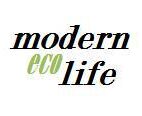We know a plant-based diet is good for the environment, prevents disease & makes you both look and feel fantastic, but the question still remains: Is a diet without any animal-based foods nutritionally adequate? Can it really deliver all of the necessary vitamins and minerals required by humans for total health and wellness? The answer is YES, a plant-based, whole food (vegan) diet delivers everything the human body physiologically needs and thrives on. I look forward to addressing this very topic here, while providing you with credible reports along with key tools and tips to fuel your body with everything it needs and more from the plant kingdom alone.
Considering the history of animal-based foods’ presence in the standard Western diet, the concern of a plant-based diet’s nutritional adequacy is hardly surprising. However, there is increasing evidence from both the medical and scientific communities showing that a whole-food vegan diet is not only nutritionally adequate, but by eliminating animal-based foods such as meat, fish, dairy and eggs, you can significantly reduce your risk of disease while drastically improving your overall physical health and well-being.

In 2009, the American Dietetic Association, the world’s largest organization of food and nutrition professionals, released a report explaining their position on both vegetarian diets and vegan diets: “It is the position of the ADA that appropriately planned vegetarian diets, including total vegetarian or vegan diets, are healthful, nutritionally adequate, and may provide health benefits in the prevention and treatment of certain diseases. Well-planned vegetarian diets are appropriate for individuals during all stages of life, including pregnancy, lactation, infancy, childhood and adolescence, and for athletes”.
Personally, I’m a huge proponent of consuming the majority of this vegan diet from fresh raw plant-foods like fruit, leafy greens and vegetables. It’s certainly no secret that they offer the absolute highest level of nutrients on the planet and are truly our most potent source of vitamins, minerals, enzymes, phyto-nutrients, chlorophyll and antioxidants. In fact, The Harvard School of Public Health has reported: “Eating plenty of vegetables and fruits can help you ward off heart disease and stroke, control blood pressure, prevent some types of cancer, avoid a painful intestinal ailment called diverticulitis, and guard against cataract and macular degeneration, two common causes of vision loss.”
So, if you’re ready to really take control of your health and do both your body and the planet a favor, let’s dive right into the delicious world of plant-based dining! To ensure that you’re getting adequate amounts of specific essential nutrients, I thought it would be useful to know which foods contain what. Following are a few tips, followed by a vitamin and mineral food-source list to help you get going.
More Stories
Homemade Cinnamon Bread, Without The Work
Whole-Wheat Cinnamon Bread (for Bread Machine) from 100 Day of Real Food. Photo: edvvc I made this recipe and just...
Cinnamon Banana Smoothie Recipe
Photo: Katrin Gilger Love cinnamon? There’s something about this woody spice that comes from the inner bark of a tree,...
Hunky Chunky Homemade Garden Salsa Recipe!
Now on most days you might find me whining about all the chunks in my salsa. Until Today. Photo: Eduardo...
Raw Food Hits The Mainstream!
You’ve probably heard the buzz around town. Raw Food Nutrition is definitely ON. You can catch it in the...
Organic Green Rhubarb Jam
We have two Rhubarb plants that have leave as large as an Elephant’s ear. The stalks are taller than my...


